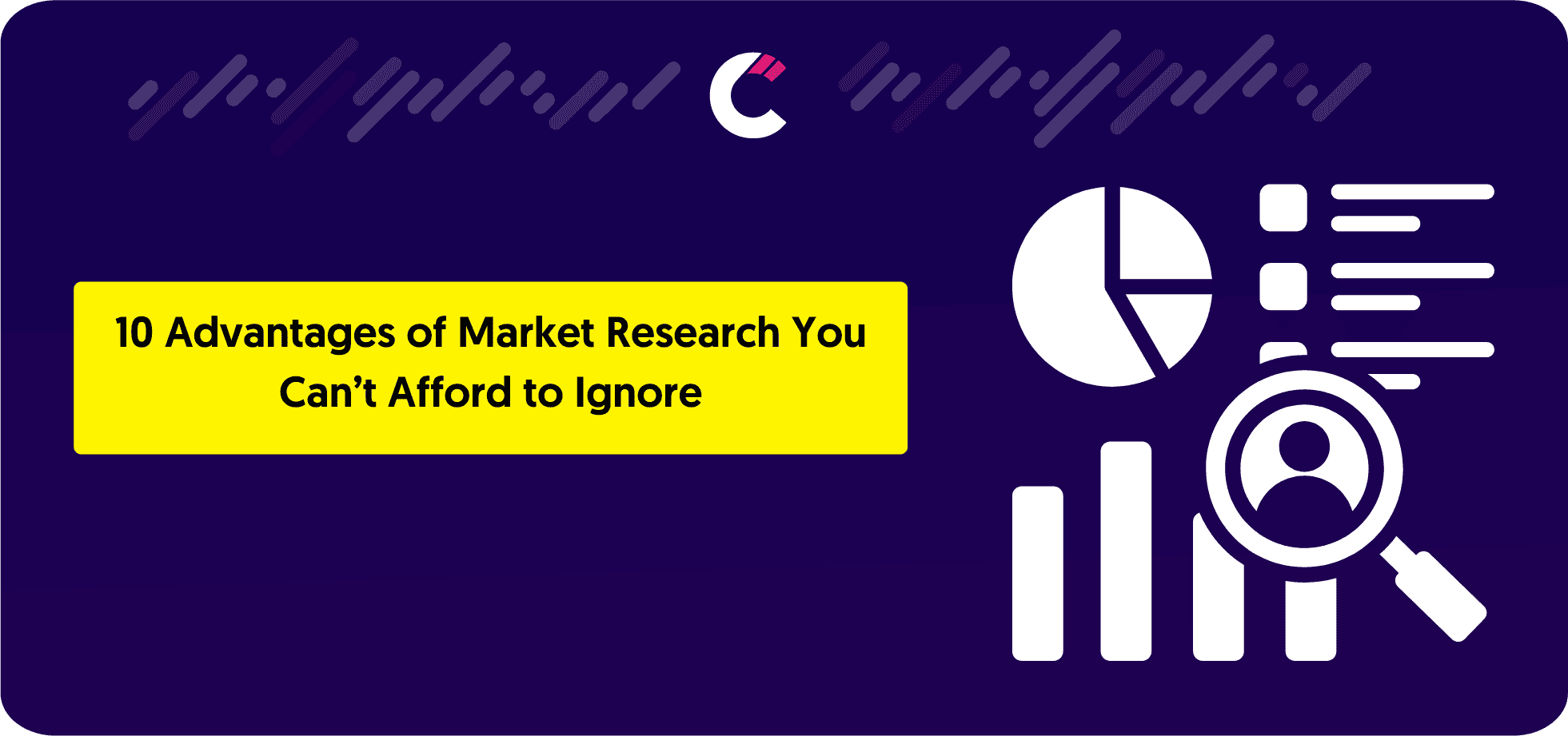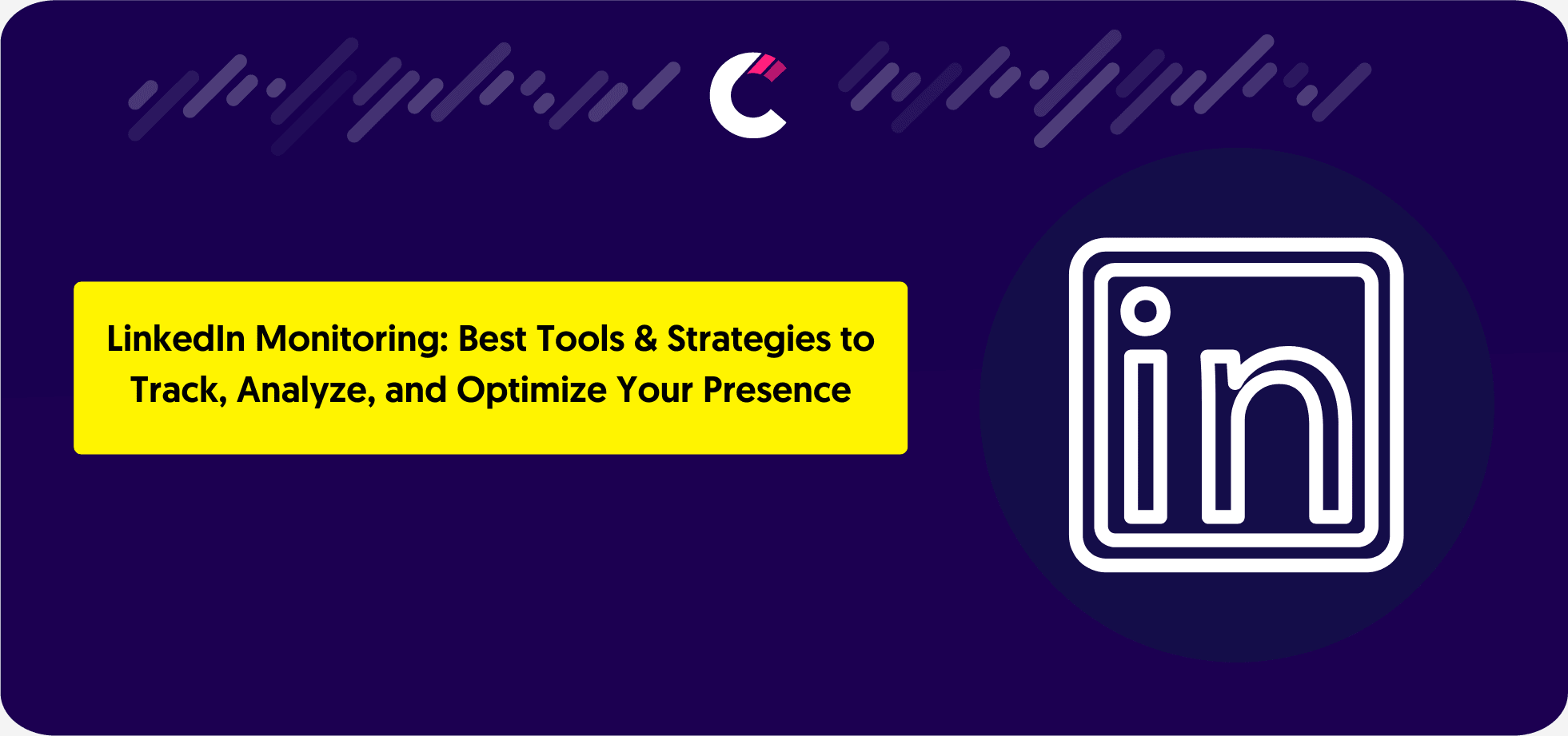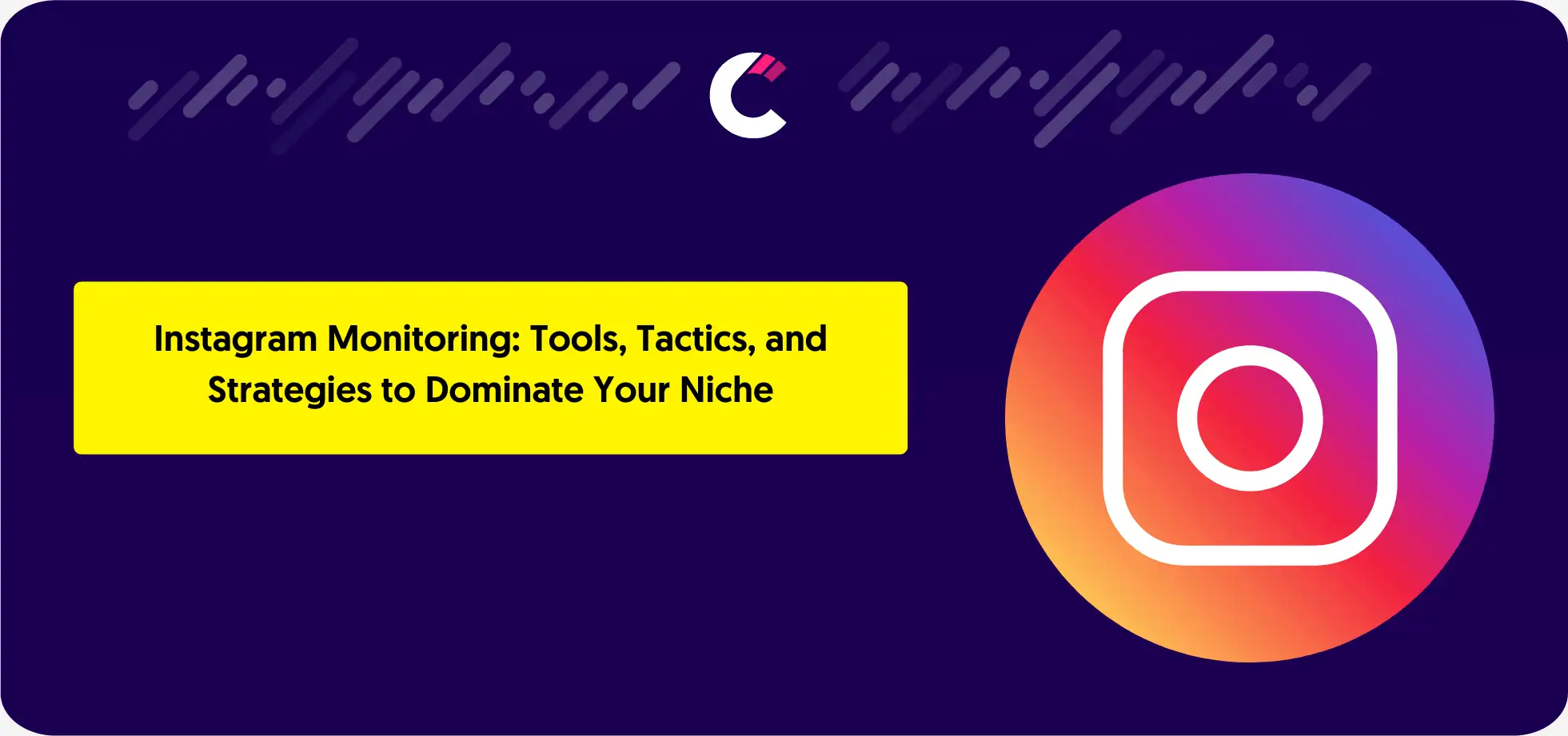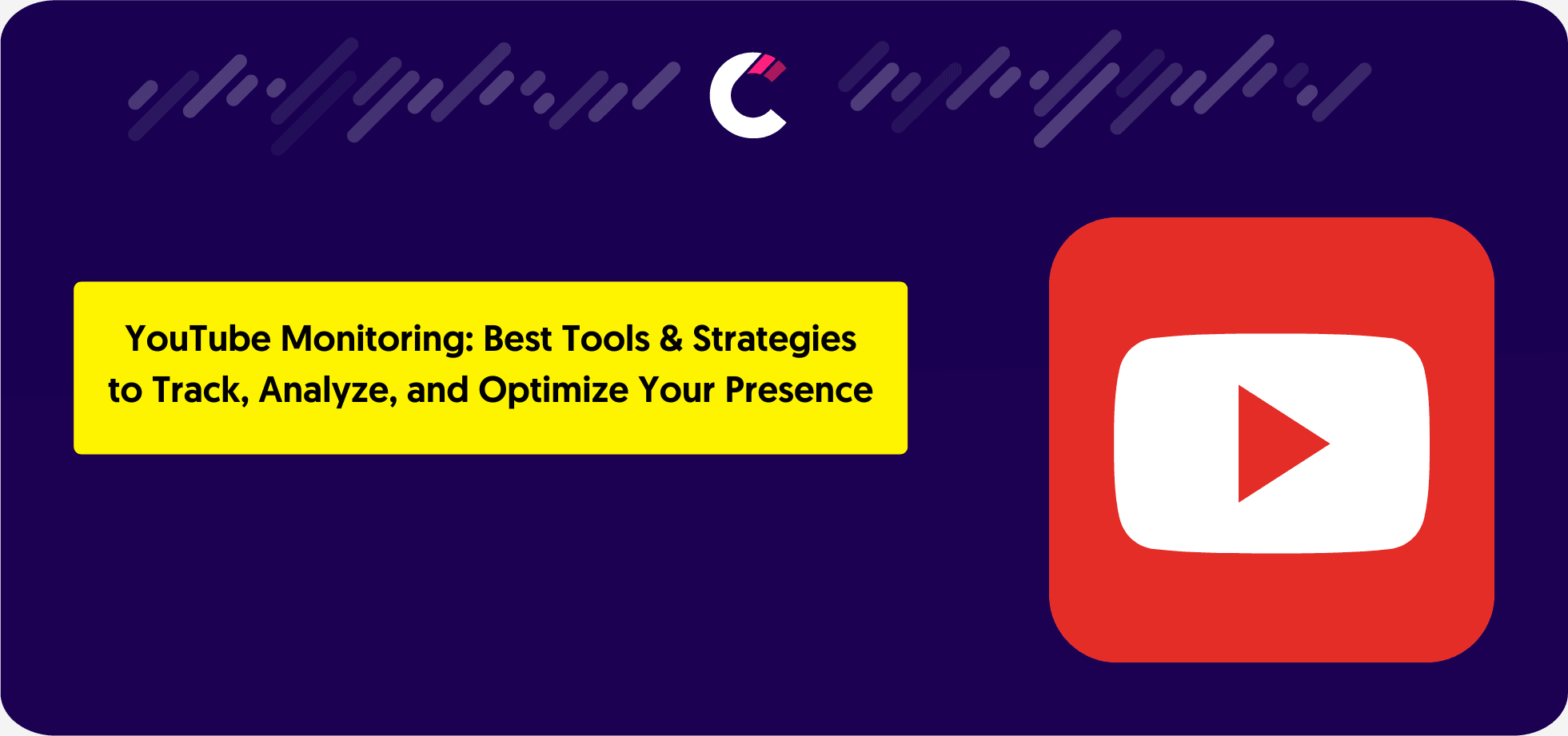Picture this: you’re launching a product you’re confident will be a hit. But without understanding what your customers actually want, how the market is shifting, or what your competitors are up to, you’re taking a shot in the dark. That’s where market research steps in—a game-changing tool that turns guesswork into strategy.
By uncovering customer preferences, spotting trends, and identifying untapped opportunities, market research helps businesses not just survive but thrive. In this blog, we’ll uncover the clear advantages of market research and how it empowers businesses to make smarter, more confident decisions. Let’s get started.
Understanding Market Research: Definition and Purpose
At its core, market research is the backbone of smart business decisions. It’s the process of gathering insights about your target market, customers, and competitors to guide your strategy.
But it’s not just about collecting data—it’s about understanding the “why” behind customer behaviors and market shifts. The purpose? To give businesses the clarity they need to adapt, innovate, and grow in a competitive landscape.
Whether you’re exploring new markets or fine-tuning your existing strategies, market research bridges the gap between assumptions and actionable knowledge.
What Is Market Research in Business?
Market research in business is all about strategy. It involves digging deep into customer behaviors, preferences, and pain points to design products and services that truly resonate. Beyond customers, it also looks outward, analyzing competitors and market conditions to spot opportunities or threats.
For example, a company may use market research to refine its messaging, ensuring it speaks directly to its audience. In business, market research isn’t just a nice-to-have—it’s a necessity for staying relevant and competitive.
Types of Market Research
Market research is not one-size-fits-all; it comes in various types, each offering unique methods and advantages.
These approaches, when combined, provide businesses with a full-spectrum view of their market and audience.
Primary Market Research: Methods and Advantages
Primary market research focuses on collecting original, firsthand data directly from the target audience. Businesses use methods like surveys to gather broad opinions, interviews for in-depth insights, focus groups for interactive discussions, and observational studies to understand real-world behaviors. The main advantage of primary research is its specificity—it’s designed to address particular questions or challenges unique to the business. Whether testing a new product concept or analyzing customer satisfaction, primary research delivers precise, actionable insights.
Secondary Market Research: Methods and Advantages
Secondary market research, on the other hand, relies on existing data from credible sources such as industry reports, government publications, academic studies, or competitors’ analyses. It’s an efficient way to gain a macro-level understanding of market trends, customer demographics, and industry benchmarks without the cost and time involved in primary research. One of its biggest advantages is accessibility—businesses can leverage secondary research to quickly identify opportunities, forecast demand, and guide strategic planning.
Qualitative vs. Quantitative Research: Key Differences
Market research often falls into two broad categories: qualitative and quantitative. Qualitative research delves into the “why” behind customer decisions, using tools like interviews and focus groups to explore attitudes, emotions, and perceptions. Quantitative research, by contrast, focuses on the “what” and “how much,” gathering numerical data through surveys, experiments, or structured questionnaires. The key difference lies in their purpose: qualitative research uncovers deeper motivations and patterns, while quantitative research provides measurable, statistically significant results that help validate assumptions. Together, they create a well-rounded understanding of market dynamics.
Advantages of Market Research for Businesses
Market research isn’t just about gathering data—it’s about transforming that data into actionable strategies that drive business success. Here are the key advantages it offers.
1. Maintaining a Customer-Centric Approach
Understanding your customers is at the heart of market research. By identifying their needs, preferences, and pain points, businesses can create products and services that truly resonate. This not only enhances customer satisfaction but also fosters loyalty. For example, targeted surveys or focus groups can reveal what features customers value most, allowing companies to address those expectations directly and improve their offerings.
2. Effective Communication with Customers
Strong customer relationships are built on clear, personalized communication, and market research provides the foundation for that. By analyzing customer feedback and preferences, businesses can craft messages that speak directly to their audience. Whether it’s through social media, email marketing, or advertising campaigns, research ensures that your communication feels relevant and meaningful, strengthening customer trust and engagement.
3. Identifying Market Opportunities
Market research shines a light on untapped potential. It helps businesses spot gaps in the market, identify underserved customer segments, and forecast future trends. For instance, analyzing competitor data or studying industry reports can reveal opportunities for new product development or expansion into emerging markets. This proactive approach enables companies to stay ahead of the curve.
4. Reducing Investment Risks
Launching a new product or entering a new market comes with risks, but market research helps mitigate them. By testing concepts through surveys, focus groups, or pilot programs, businesses can gauge customer interest and refine their strategies before making significant investments. This data-driven approach minimizes the chances of costly mistakes and ensures that decisions are backed by evidence.
5. Supporting Data-Driven Decision Making
In a world where data is king, market research empowers businesses to make informed, confident decisions. Secondary data, such as industry benchmarks or competitor insights, provides a foundation for strategic planning. Additionally, real-time data from tools like Competitors App can help businesses adjust their strategies dynamically, staying responsive to market changes.
6. Improving Brand Recognition and Reputation
A strong brand is built on understanding how your audience perceives you. Market research helps businesses measure brand awareness and sentiment among their target market. By identifying areas for improvement, companies can refine their messaging and strengthen their reputation, ensuring they stand out in a crowded marketplace.
7. Staying Ahead of Market Trends
Markets evolve quickly, and businesses that fail to adapt risk falling behind. Regular market research allows companies to monitor emerging trends and anticipate shifts in customer behavior or industry practices. Staying informed ensures businesses remain competitive and ready to capitalize on new opportunities as they arise.
8. Enhancing Competitive Positioning
Understanding what competitors are doing is a critical advantage of market research. Tools like Competitors App enable businesses to analyze competitor strategies, track their marketing efforts, and identify gaps that can be leveraged. By knowing where you stand in the competitive landscape, you can refine your approach and position your brand more effectively.
9. Optimizing Marketing Campaigns
Effective marketing requires precision, and market research provides the insights needed to allocate resources wisely. Identifying the right marketing channels, understanding audience preferences, and measuring campaign performance all become easier with research-backed data. This leads to higher ROI and more impactful campaigns.
10. Identifying Potential Threats
Every market comes with risks, but research helps businesses prepare. Conducting SWOT analyses or monitoring industry changes allows companies to recognize threats early and develop strategies to mitigate them. Whether it’s new competition, shifting regulations, or evolving customer expectations, market research keeps businesses proactive and resilient.
Different Market Research Methods
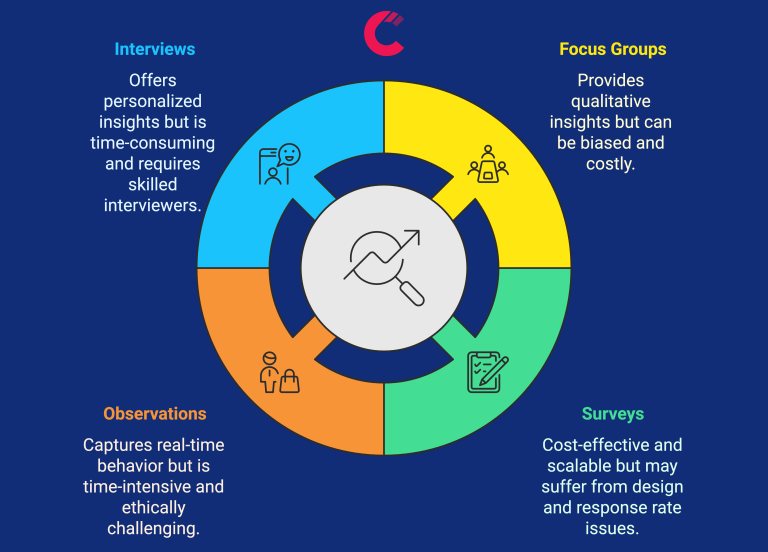
Market research relies on various methods to gather valuable insights, each tailored to specific goals and audiences. Let’s explore the most commonly used methods and their unique strengths and limitations.
1. Focus Groups
Focus groups involve small, diverse groups of participants engaging in guided discussions about a product, service, or concept.
Advantages of Focus Groups:
- Provides in-depth qualitative insights into customer attitudes and perceptions.
- Encourages open discussions, which can uncover unique perspectives and ideas.
Disadvantages of Focus Groups:
- Time-consuming and expensive to organize.
- Group dynamics may lead to biased opinions, where dominant participants influence others.
2. Surveys
Surveys are structured questionnaires designed to gather data from a large audience. They can be conducted online, in person, or through other channels.
Advantages of Surveys in Market Research:
- Cost-effective and scalable, making it easier to reach diverse demographics.
- Provides quantifiable data, enabling businesses to identify trends and make data-driven decisions.
Disadvantages of Surveys:
- Limited by the quality of survey design—poorly crafted questions can lead to inaccurate results.
- Risk of low response rates, especially in digital formats.
3. Observations
Observational research involves studying customers in their natural environment without direct interaction.
Advantages of Observational Research:
- Captures real-time behaviors and interactions, offering unique insights into how customers engage with products or services.
- Ideal for understanding customer habits in retail or service settings.
Disadvantages of Observational Research:
- Time-intensive and limited to visible behaviors, often lacking contextual explanations.
- Ethical considerations may arise if participants are unaware they are being observed.
4. Interviews
Interviews are one-on-one conversations aimed at exploring customer experiences, opinions, or feedback in detail.
Advantages of Interviews:
- Offers highly personalized insights and allows for follow-up questions to clarify responses.
- Suitable for exploring complex topics or gaining a deeper understanding of individual motivations.
Disadvantages of Interviews:
- Requires skilled interviewers to avoid leading questions or introducing bias.
- Time-consuming and costly when conducted at scale.
How Competitors App Enhances Market Research
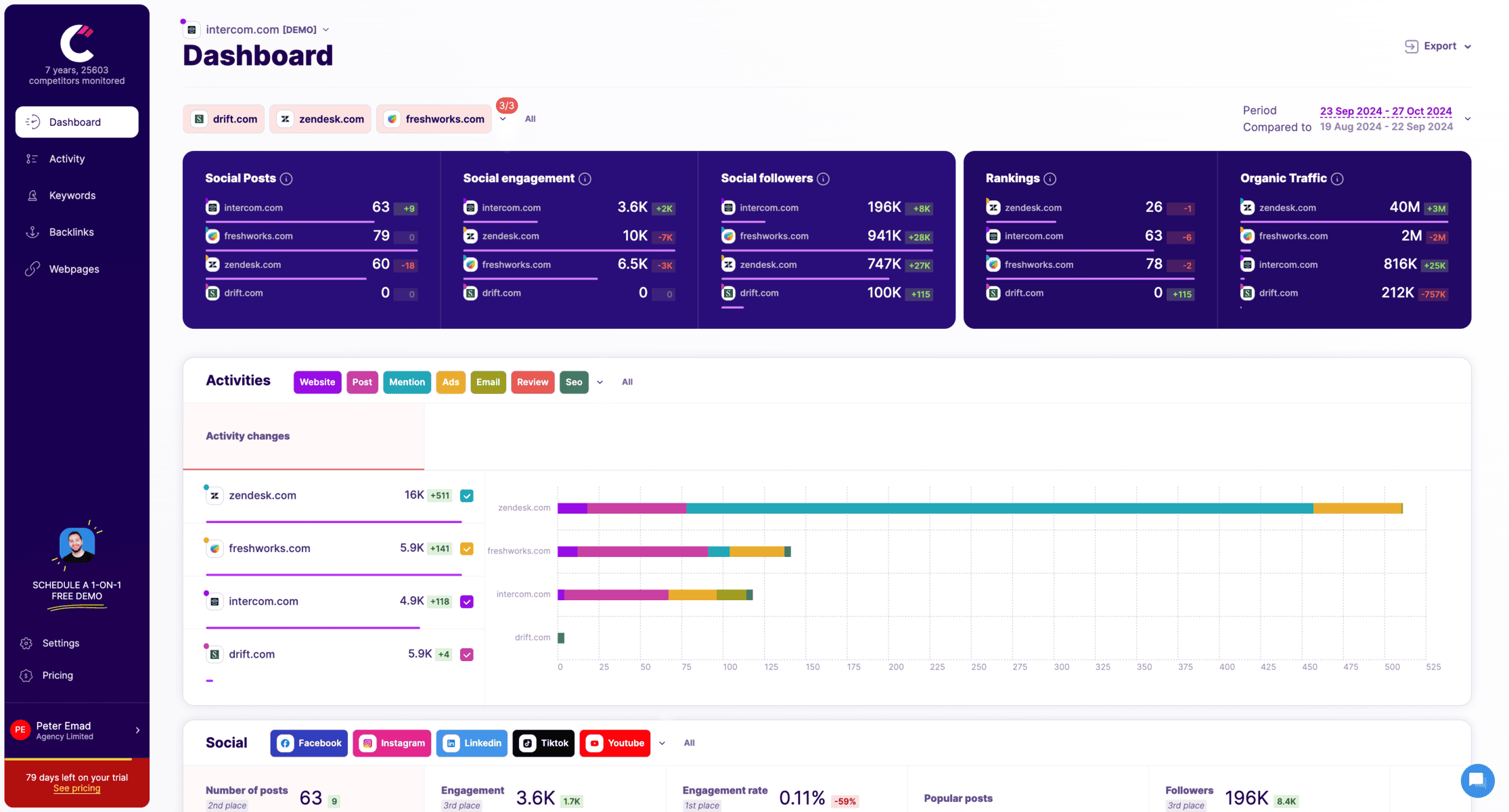
Staying ahead in a competitive market requires more than intuition—it demands actionable data. Competitors App is a powerful tool designed to enhance market research by providing real-time insights into competitor activities. Here’s how it supports businesses in making informed decisions:
- Tracking Competitors’ Website Changes: The app monitors updates on competitors’ websites, helping businesses identify shifts in strategy, such as new product launches or pricing adjustments.
- Analyzing Ad Strategies: By tracking competitors’ advertising campaigns, businesses can gain insights into what works and what doesn’t, refining their own ad strategies for better performance.
- Monitoring Social Media Performance: Competitors App keeps tabs on competitors’ social media engagement, uncovering audience preferences and helping businesses craft compelling content.
- Providing Actionable Data for SWOT Analysis: With data on competitors’ strengths and weaknesses, businesses can conduct more effective SWOT analyses and adjust their strategies accordingly.
Competitors App offers flexible pricing plans tailored to different business needs, starting at $19 per month.
To help you get started, we also provide a 14-day free trial, allowing you to experience the full suite of features risk-free. Competitors App bridges the gap between raw data and strategic planning, making it an essential resource for businesses looking to outperform their rivals.
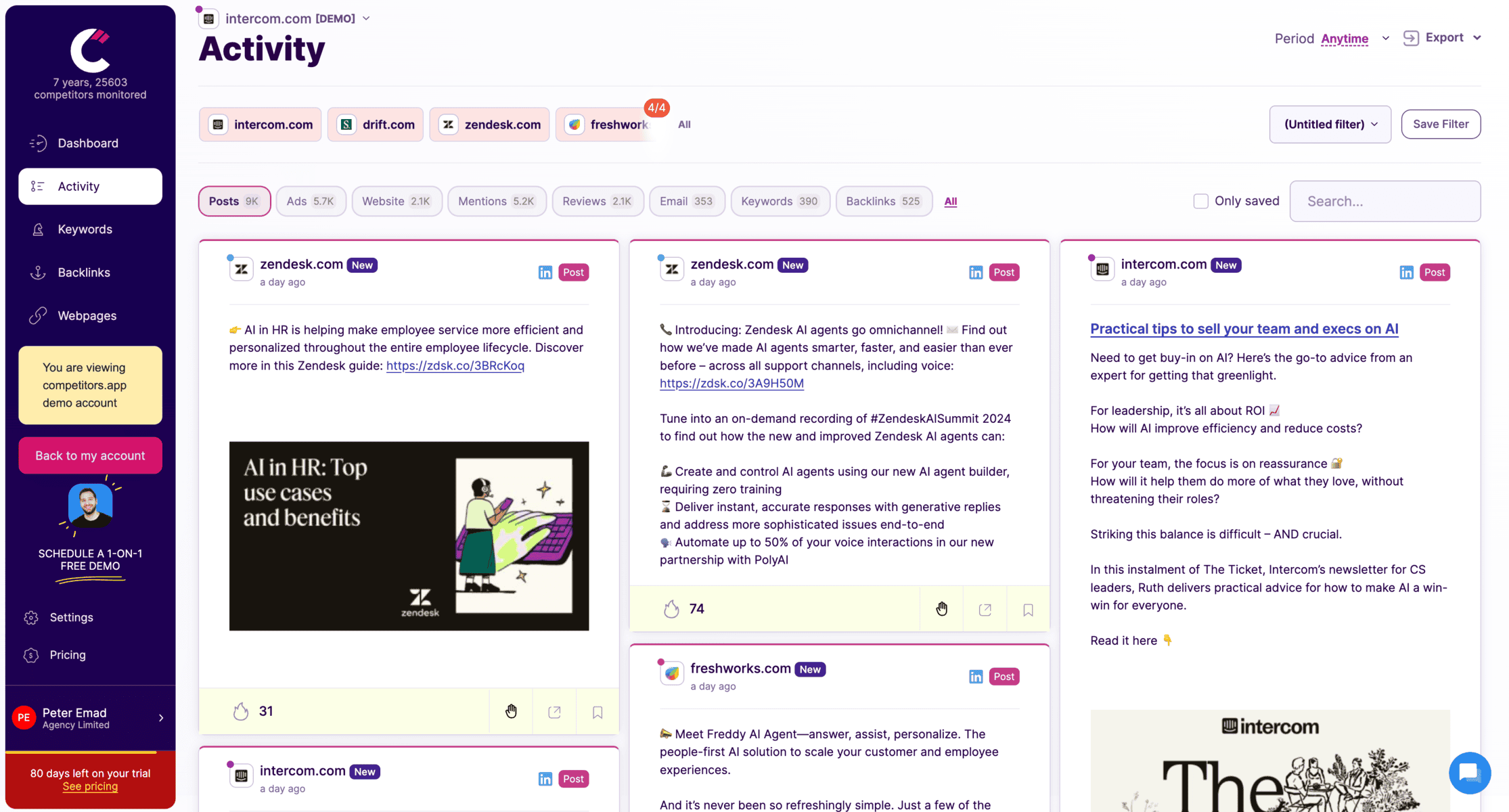
Tracks competitor social media updates across LinkedIn, Facebook, Twitter, and more.
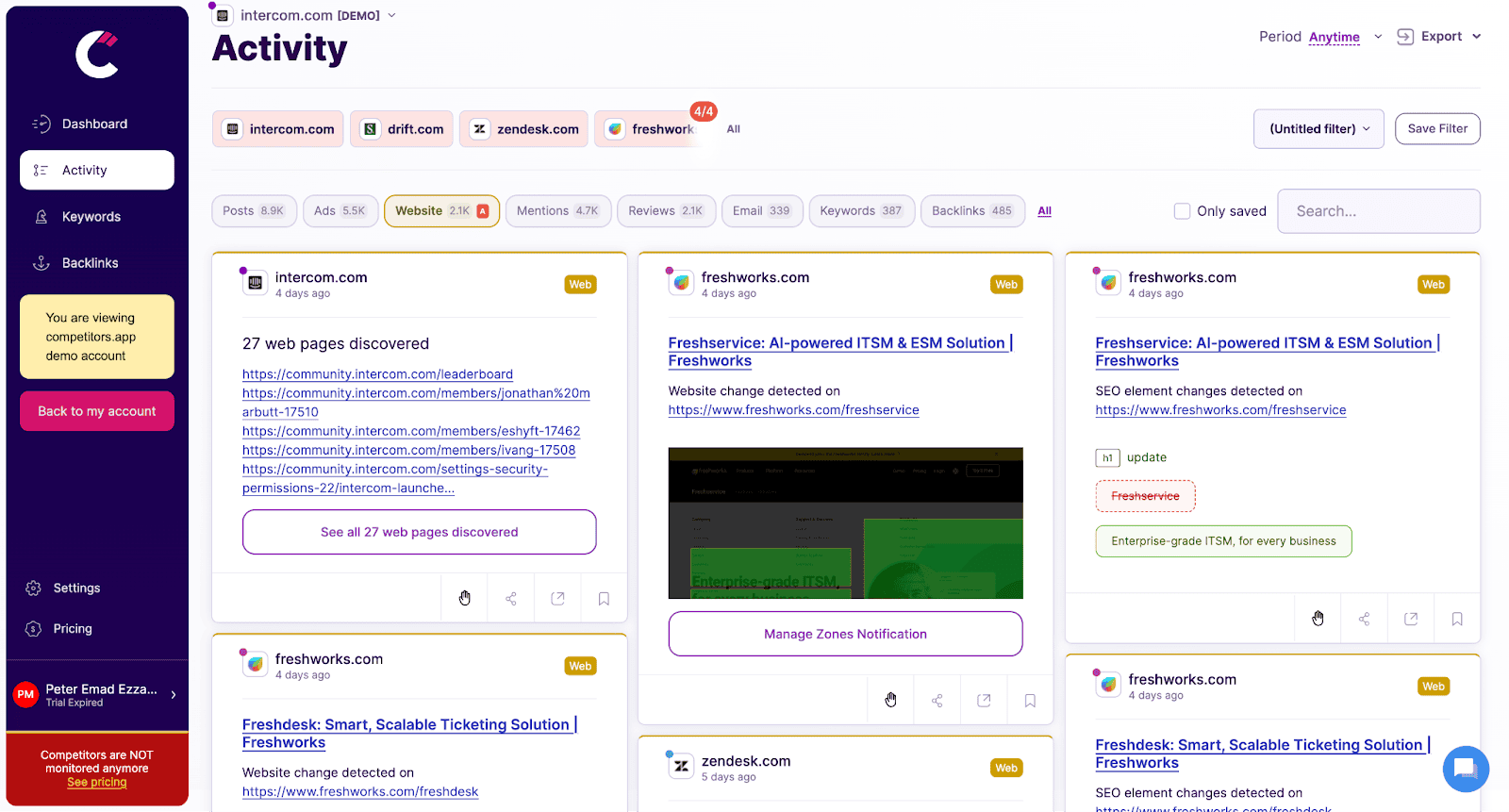
Monitors changes on competitors’ websites, such as product updates, pricing adjustments, and new messaging, providing instant alerts to help sales teams respond promptly.
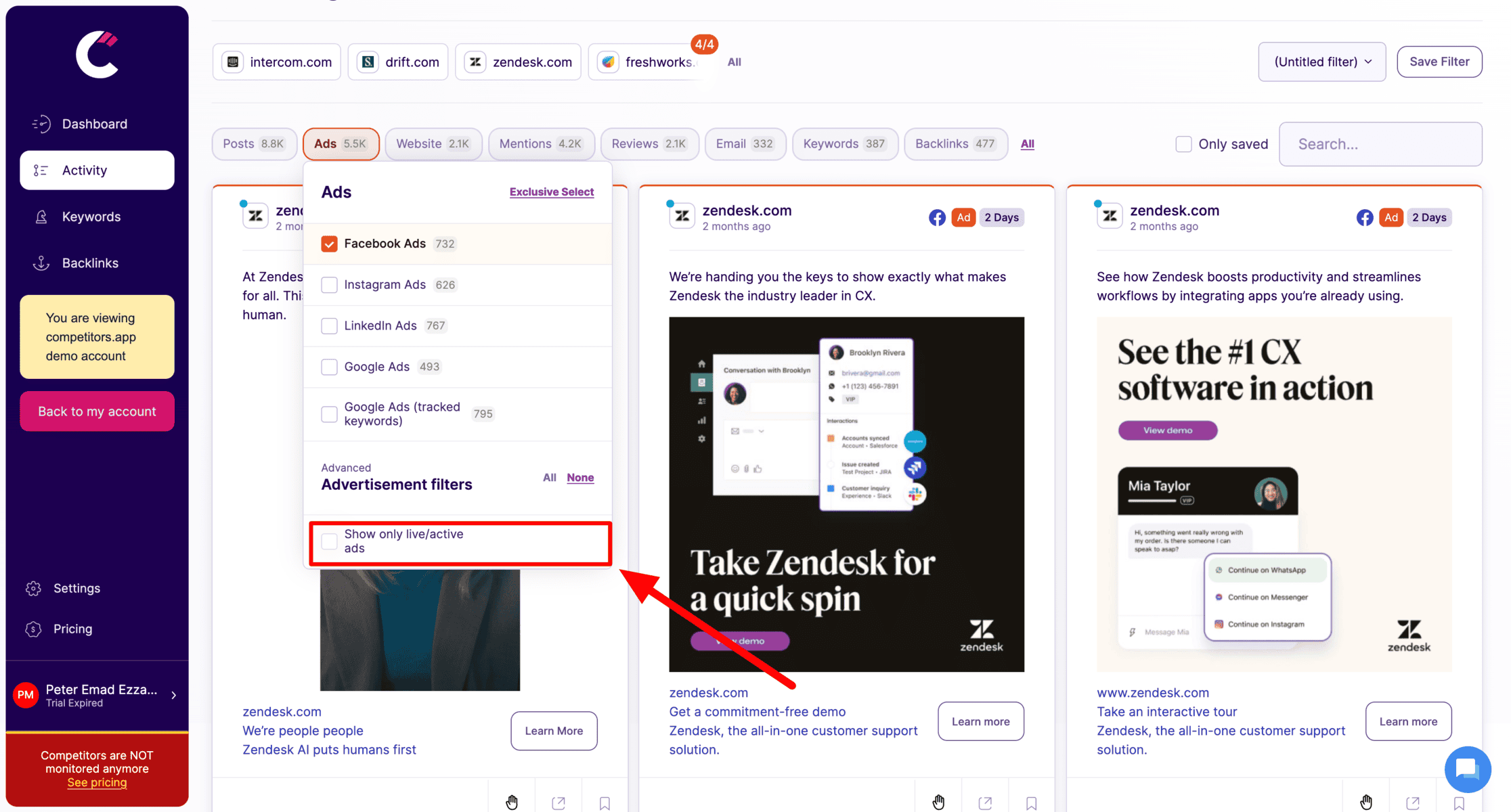
Tracks digital ad campaigns across platforms like Google Ads, Facebook, LinkedIn, and Instagram. It provides details on ad creatives, spending, and performance metrics, helping teams analyze successful ad strategies.

Analyzes competitors’ keyword strategies, organic rankings, and backlinks, allowing teams to refine their own SEO tactics and boost search visibility.
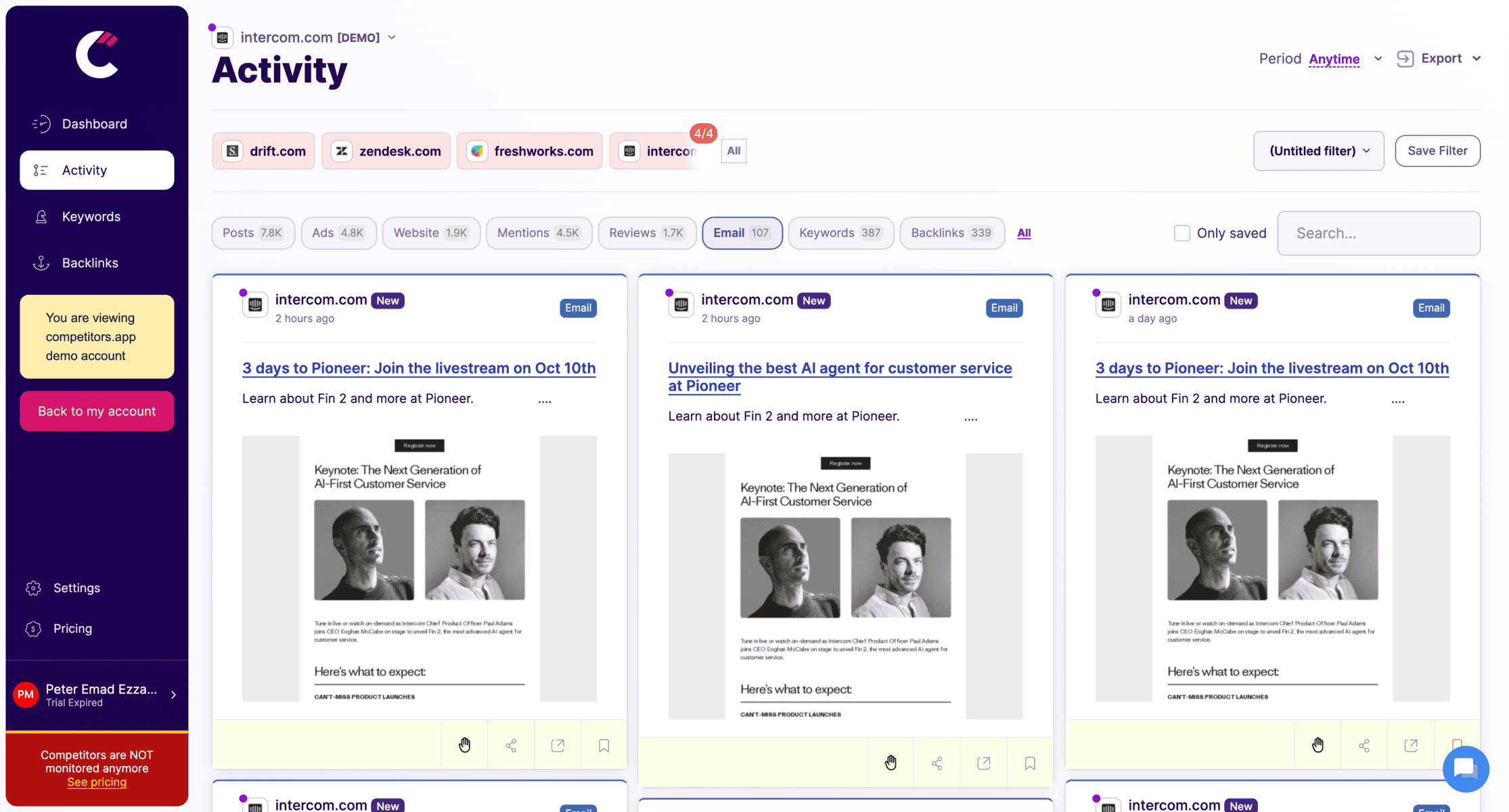
Tracks competitors’ email campaigns, including content, frequency, and engagement metrics, helping sales teams understand email tactics that drive engagement and conversions.
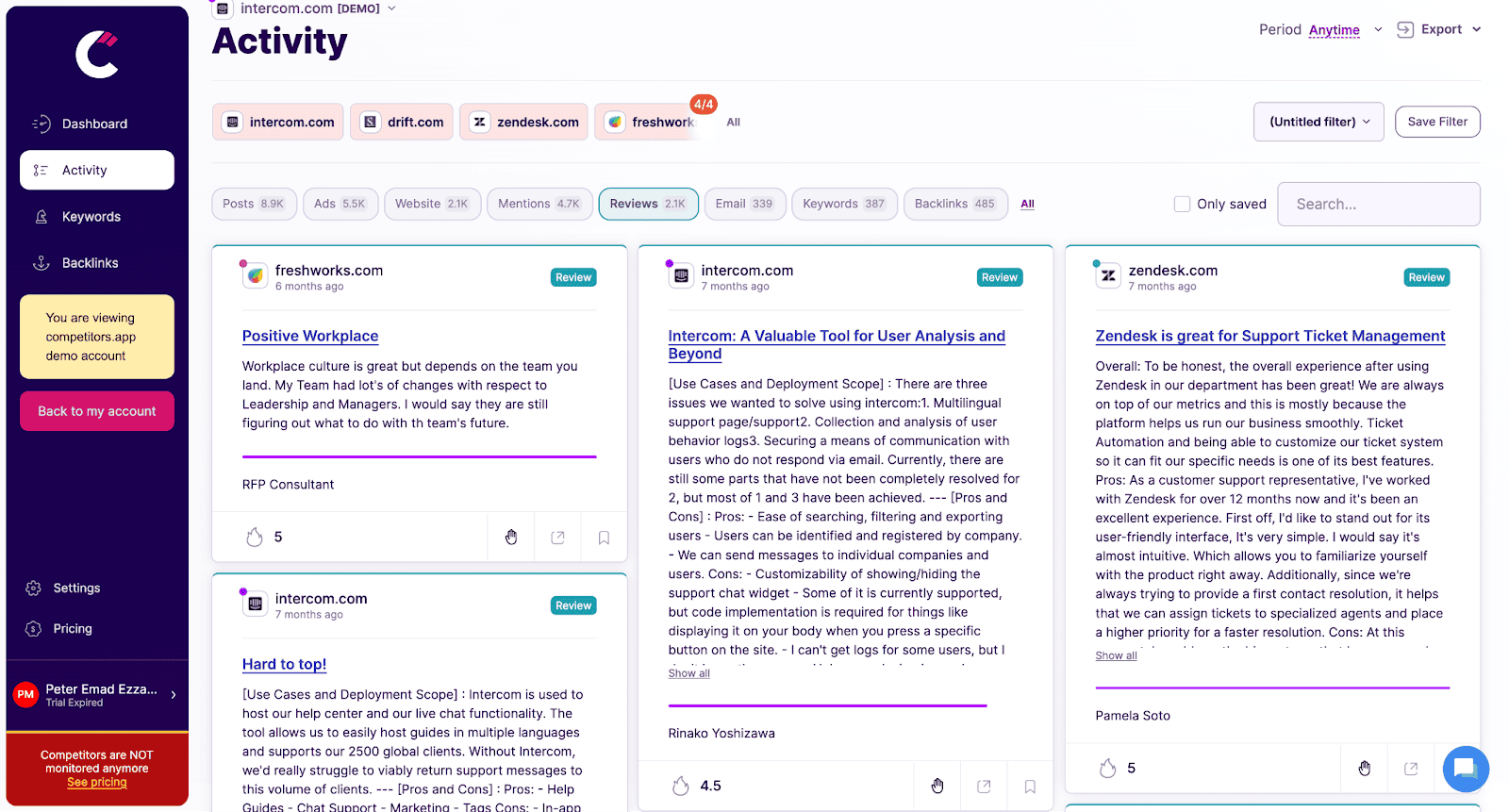
Analyzes customer reviews and ratings for competitors, providing insights into customer feedback, pain points, and product strengths, helping teams craft better sales pitches.
Limitations and Challenges of Market Research
While market research is a powerful tool, it does come with certain limitations and challenges that businesses need to navigate. Understanding these can help in setting realistic expectations and planning effectively.
1. Time-Consuming Processes
Conducting thorough market research takes time. Gathering data, analyzing it, and interpreting the results can delay decision-making, especially when using primary research methods like interviews or focus groups. This can be a hurdle for businesses operating in fast-paced industries where quick decisions are essential.
2. High Costs for Comprehensive Studies
Primary research often requires significant financial investment. From hiring research agencies to organizing surveys or focus groups, the costs can add up quickly. For smaller businesses, this can make comprehensive studies challenging without proper budget allocation.
3. Subjectivity in Qualitative Methods
Qualitative research, such as interviews and focus groups, relies on human responses, which can be influenced by biases or personal opinions. This subjectivity may skew results, making it essential for researchers to account for potential inaccuracies during analysis.
While these challenges exist, businesses can overcome them by balancing primary and secondary research methods, leveraging cost-effective tools like Competitors App, and focusing on specific, actionable insights.
How to Conduct Effective Market Research
Conducting effective market research requires a structured approach to ensure the insights gathered are accurate, relevant, and actionable. Here are the key steps to follow:
Define Your Goals
Start by identifying what you want to achieve with your research. Are you looking to understand customer preferences, evaluate market trends, or analyze competitors? Clear objectives help guide the research process and ensure the data collected is meaningful.Choose the Right Research Methods
Select methods that align with your goals. For instance, use surveys for quantitative data, focus groups for in-depth qualitative insights, or secondary data sources for cost-efficient trend analysis. Combining multiple methods can provide a well-rounded understanding.Identify Your Target Audience
Pinpoint the demographic or market segment you want to study. Ensure your sample size is representative to obtain reliable and generalizable results.Gather Data Using Tools and Platforms
Use reliable tools to streamline the data collection process. Tools like Competitors App can help track competitor activities, while platforms like Google Forms or SurveyMonkey simplify survey creation and distribution.Analyze and Interpret Data
Organize and evaluate the collected data to identify patterns, trends, and actionable insights. Use statistical tools for quantitative research and thematic analysis for qualitative data.Apply the Insights
Use the findings to refine strategies, develop new products, or optimize marketing campaigns. Ensure the insights are integrated into decision-making processes for maximum impact.
By following these steps, businesses can conduct market research that delivers value and drives growth.
FAQ About the Advantages of Market Research
What are the advantages of market research?
The advantages of market research include gaining a deeper understanding of customer needs, identifying new market opportunities, reducing investment risks, and enabling data-driven decisions. It helps businesses stay competitive, optimize their strategies, and ensure their offerings resonate with their target audience.
What are the disadvantages of market research?
It can be time-consuming, expensive, and susceptible to biases in qualitative methods.
What are the advantages of qualitative market research?
Qualitative market research provides rich insights into customer motivations, emotions, and perceptions. It helps businesses understand the “why” behind consumer decisions, allowing for more targeted strategies.
What are the advantages of primary market research?
Primary market research delivers highly specific and relevant data tailored to business needs. It offers deeper insights into customer behavior and helps businesses address unique challenges.
What are the advantages of secondary market research?
Secondary market research is cost-effective, easy to access, and provides a broad understanding of market trends. It complements primary research by offering a macro-level view without extensive fieldwork.
What industries benefit the most from market research?
Market research is valuable across industries, including retail, technology, healthcare, education, and finance, as it supports better decision-making in any sector.
What is the difference between primary and secondary market research?
Primary research involves collecting new data directly from the source, while secondary research relies on analyzing existing data from external resources.
